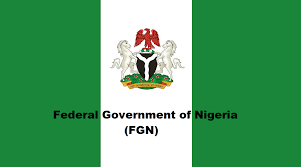By Ayobamiji Komolafe Regina Otokpa
The Federal Government has commenced a nationwide initiative to build the technical and leadership capacities of healthcare managers as part of efforts to address systemic gaps and improve health outcomes for Nigerians.
Speaking at the Health System Strengthening Workshop under the National Health Sector Renewal Investment Initiative (NHSRII) in Abuja, Dr. Ashiru Abubakar, Governance Coordination and Subnational Engagement Lead at the SWAp Coordination Office, said the programme is designed to empower health managers with the skills to develop coordinated operational plans.
According to him, at least three senior health managers have been selected from each state to undergo intensive training, with the expectation that they will cascade the knowledge to between 40 and 80 programme managers in their respective states.
Abubakar expressed confidence in the multiplier effect of the initiative, targeting a reach of no fewer than 25,000 health officers across the country who will serve as change agents in Nigeria’s healthcare system.
“This year, the Coordinating Minister directed that we develop a comprehensive plan to strengthen the capacities of individual programme managers—both in leadership and technical areas of health system strengthening—so they can understand existing challenges and design better solutions.
“We worked with each state to identify their top three programme officers. These individuals will return to their states and train an ‘army’ of 40 to 80 health managers. According to the Nigerian Governors’ Forum Secretariat, these three individuals represent the seeds of hope for the health sector. If they succeed, it will translate into significant efficiency gains and improved health outcomes,” he said.
Abubakar stressed the importance of developing indigenous, pragmatic, and comprehensive health plans tailored to the realities of Nigeria’s health sector, rather than relying solely on foreign development partners.
“In this journey, we are working very closely with all the states and our development partners to make sure we get it right. The goal is to have Nigerians begin to feel the impact of the reforms by 2026,” he added.
He outlined key priorities of the reform agenda, including the revitalization of 2,000 primary healthcare facilities to deliver full services—such as basic emergency obstetric care—alongside improving access to essential medicines and expanding health insurance coverage.
Also speaking, Omoruyi Iyahen, Deputy Director seconded from the National Health Insurance Authority (NHIA), described the initiative as a “game changer,” praising the Coordinating Minister of Health for uniting stakeholders under a shared vision.
“SWAp is designed to coordinate and strengthen the health system. The Minister’s approach is inclusive and focused on the system, not individuals or institutions. He has mobilized significant funding and is committed to making all parts of the health sector work in synergy,” Iyahen said.
He emphasized that training healthcare workers is critical to resolving the country’s health challenges, warning that failure to do so would leave communities vulnerable to unqualified alternatives.
“Without adequately trained health workers, we risk leaving our people at the mercy of untrained providers. This training is crucial to the transformation we seek,” he added.
